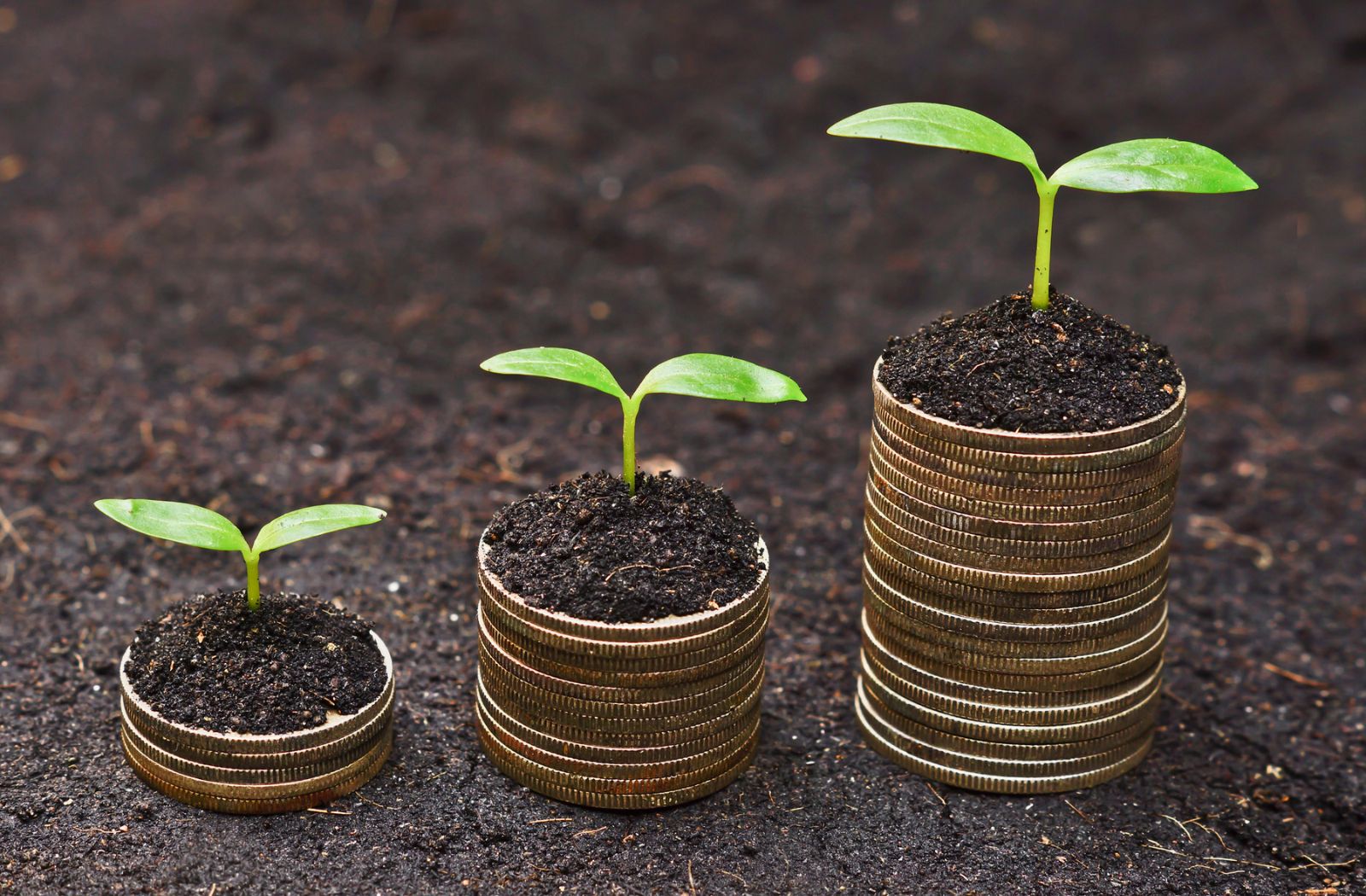
Inhaltsverzeichnis
What is economic sustainability?
Sustainability is a term that has gained increasing importance in recent years. While ecological sustainability, such as protecting the environment and preserving natural resources, is often the first thing that comes to mind, the economic component is equally crucial to sustainability. But what exactly does the term "economic sustainability" mean?
What is economic sustainability? Economic sustainability encompasses measures and strategies aimed at promoting long-term economic growth without harming the environment or exacerbating social inequalities. It is about finding a balance that allows businesses and economies to thrive while simultaneously addressing the needs of current and future generations.
It is important to develop a sustainable economic model to address the challenges of climate change, resource scarcity, and social inequalities. This model should not only support sustainable economic growth but also contribute to creating a fairer and more livable world for all.
Economic Sustainability: A Definition
The concept of economic sustainability is extremely complex and refers to how an economy can generate sustainable growth without having to exploit natural resources or increase social inequalities. The main focus is on creating a stable economic system, that is sustainable in the long term and does not enable development at the expense of the environment or society.
This form of sustainability emphasizes the need to organize economic activities in such a way that they do not harm future generations. It is about creating economic systems that efficient, resource-saving and inclusive This includes promoting innovation, efficient use of resources, fair working conditions, and preventing environmental pollution.
Economic sustainability is different from other forms of sustainability such as ecological and social sustainability although they are closely linked:
Ecological sustainability:
- Focus on protecting the environment
- Preservation of natural resources
Social sustainability:
- Promoting social justice and equality
- Focus on the well-being of the community
Economic sustainability:
- Focus on creating and maintaining a healthy economic system
- Long-term ecological compatibility and social justice
By integrating these elements, the economic sustainability This ensures that economic growth is not viewed in isolation, but as an integral part of a broader system of sustainable development. It is thus a crucial building block for a sustainable and just world.
The importance of economic sustainability
The importance of economic sustainability cannot be overemphasized. It plays a crucial role in creating a balanced and sustainable world.Here are the main reasons why economic sustainability is crucial:
- Sustainable economic growth: Economic sustainability enables economic growth that does not deplete resources or harm the environment. This ensures that future generations have both the necessary natural resources and a healthy environment to successfully meet their own needs.
- Promoting social justice: By taking social factors such as fair working conditions and equitable wage structures into account, economic sustainability contributes to reducing inequalities and promoting the well-being of all social classes.
- Long-term corporate strategies: Companies that practice economic sustainability tend to pursue long-term strategies. This leads to greater stability, reduced risk, and better adaptability to market fluctuations.
- Innovation and efficiency: Economic sustainability promotes innovation, especially in the area of resource efficiency. This can reduce costs, increase productivity, and open up new business opportunities.
- Positive impact on the environment: Although economic sustainability primarily considers economic aspects, it nevertheless has positive effects on the environment as it promotes the responsible use of natural resources.
- Building trust and reputation: Companies that pursue sustainable practices gain the trust of their customers and employees. This strengthens their brand and reputation, leading to greater customer loyalty and business success in the long term.
The long-term benefits of economic sustainability for companies and society are obvious: It provides a stable basis for continuous economic growth, supports a fairer society and promotes a healthy environmentBy placing economic sustainability at the heart of our economic activities, we secure not only our current prosperity but also that of future generations.

Greenwashing: A challenge for true sustainability
Greenwashing is an increasingly relevant phenomenon in today's business world, especially in the context of sustainability. It refers to the practice of companies more environmentally friendly or socially responsible, than they actually are.
What is greenwashing?
- Misleading representations: Companies often use vague, ambiguous, or exaggerated claims to promote their products or services as “eco-friendly” or “sustainable,” even though their business practices contradict this.
- Selective disclosure: Some companies emphasize small, positive environmental aspects while ignoring larger, harmful environmental impacts of their business activities.
Impacts and examples
- Consumer deception: Greenwashing leads to the deception of consumers who buy products in the belief that they are making a positive contribution to environmental protection.
- Undermining genuine sustainability efforts: Greenwashing undermines trust in sustainable products and companies, discrediting genuine efforts in this area.
- Example cases: A well-known example of greenwashing is the advertising of "biodegradable" plastic bags, which in reality cannot be fully degraded under normal environmental conditions. Another example is car manufacturers advertising their vehicles as particularly environmentally friendly, even though they simultaneously contribute significantly to air pollution and CO₂ emissions.
Greenwashing poses a serious challenge to the authenticity and credibility of sustainability efforts. It is important that consumers and companies alike are aware of this and take a stand against such deceptive practices to promote a truly sustainable future.
paigh's path to economic sustainability
paigh is committed to the concept of economic sustainability and demonstrates this through concrete measures and practices. This approach is reflected in various aspects of our business model.
Implementation of economic sustainability at paigh
- Fair production conditions: A core element of paigh's sustainability strategy is ensuring fair working conditions in our production facilities. This includes fair wages, reasonable working hours, and safe working environments for all employees.
- Sustainable materials: paigh places great emphasis on using sustainable, high-quality materials manufactured under environmentally friendly conditions. This reduces the ecological footprint and promotes product longevity.
- Local production and community support: paigh works closely with local communities in its production countries. This partnership strengthens local economic cycles while ensuring that production meets the company's social and environmental standards.
Practical examples from paigh
- The paigh pants: A concrete example of paigh’s commitment is our iconic paigh pantsThese trousers are manufactured under fair conditions in Thailand, with particular emphasis on the quality of the materials and compliance with ethical production standards.
- Cooperation with the World Fair Trade Organization: paigh's efforts toward economic sustainability are further strengthened through our collaboration with organizations like the World Fair Trade Organization. This underscores our commitment to global fair trade standards.
- Transparent supply chain: paigh strives for transparency in its supply chain to ensure that all processes adhere to the principles of economic sustainability. This builds trust and credibility among both consumers and production partners.
Through these measures, paigh implements the concept of economic sustainability and thus contributes to a fairer and more sustainable fashion industry. We show that it is possible fashionable and comfortable clothing to produce without neglecting ethical and ecological standards.

Conclusion && Outlook
Our exploration of economic sustainability has given us deep insight into the necessity and implementation of this important concept.paigh's commitment in this area serves as an exemplary example of the positive changes that are possible in the fashion industry.
Summary of the main points
- Definition and meaning: Economic sustainability refers to long-term, responsible economic growth that takes into account the environment and social justice.
- Differentiation from other forms of sustainability: Compared to ecological and social sustainability, the focus of economic sustainability is on creating a healthy economic system that is ecologically responsible and socially just.
- Greenwashing: A critical aspect that highlights the importance of authentic sustainability efforts.
- paigh's commitment: At paigh, we demonstrate how economic sustainability can be put into practice, from fair production conditions to the use of sustainable materials.
Outlook on the future of economic sustainability
The future of economic sustainability looks promising. More and more companies are recognizing the importance of sustainable practices and integrating them into their business models. This development is driven not only by growing environmental awareness and social justice, but also by increasing consumer pressure and the desire for more authentic and transparent brands.
In this dynamic, paigh plays an important role as a role model and source of inspiration. Our approach demonstrates that economic sustainability is not only desirable but also practically achievable. In the future, we will likely see more and more companies following this example, enabling a more sustainable and equitable global economy.



























Leave a comment
This site is protected by hCaptcha and the hCaptcha Privacy Policy and Terms of Service apply.